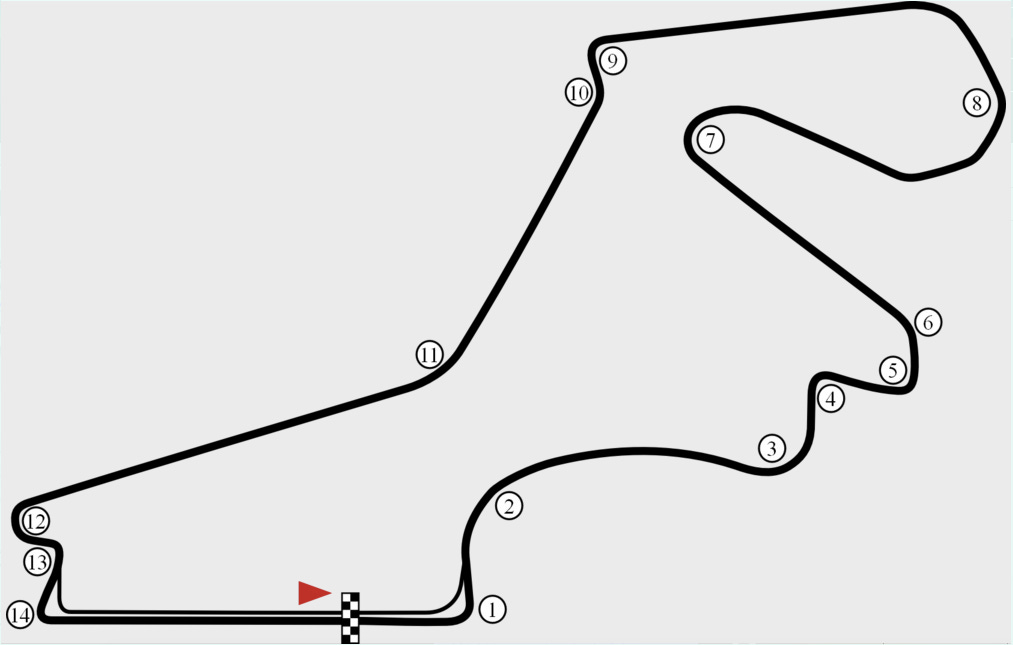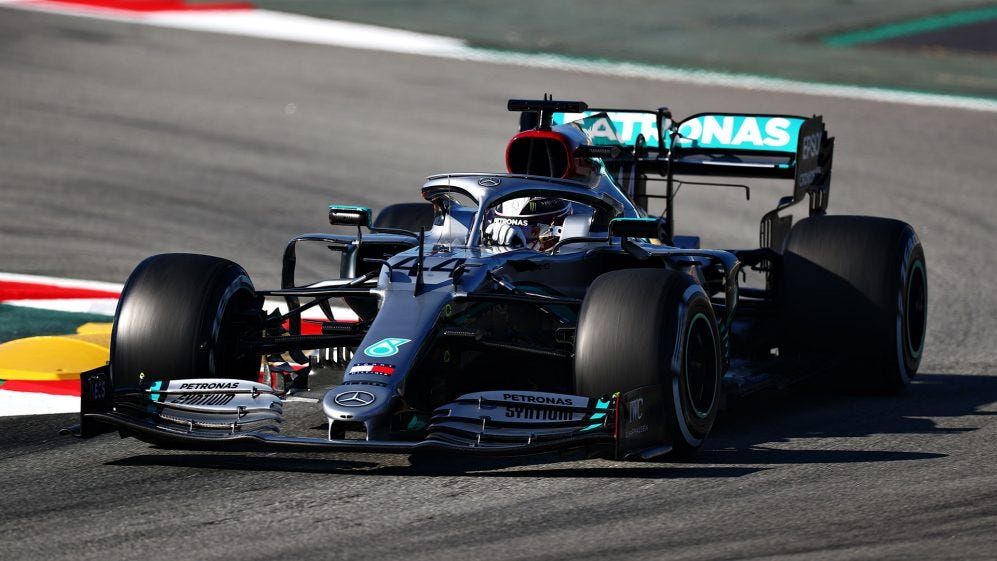You can't pivot out of a small mindset
Challenge your Moonshot Vision
N.B. This perspective is for high-growth, venture backed startups.
Formula 1 cars race at speeds in excess of 300 km/h (190 mph) and need to navigate inhuman turns, like Turn 8 at Istanbul Park below, where cars maintain speeds of 265 km/h to 285 km/h and 4.5 - 5.5g for 7 seconds.

One of the fascinating things about Formula 1 is that the only way to successfully drive the course is much faster and more aggressively than you ever dreamed of. Approaching a turn cautiously at 100 km/h will lead to a crash. Approach that same turn at 250 km/h, brake aggressively to 100 km/h in under 50m and then accelerate out of it, and the car handles it easily.
In 2009 I was the first hire at Eric Schmidt’s early stage venture fund, Innovation Endeavors. I spent that year meeting many brilliant founders. A common observation I saw with those early in those journeys is not dreaming as big as they could. I’ll do a separate post about what VCs look for in startup, but I believe vision is critical.
I often tell founders: “It’s hard to pivot out of a small market, and it’s even harder to pivot out of a small mindset.” Startups are limited by their founders’ vision.
We overestimate what is possible in 1 year and underestimate what is possible in 5 years. In this post I’ll use the imperfect analogy of a Formula 1 race car to argue that a moonshot vision is one of the most important things to figure out and articulate early on and increases your company’s likelihood of success.
Before reading on, take a breath and ask yourself: What would your moonshot vision be if you could recruit the best people in the world and the resources you need?
Tie this back to startups, please
Startups live and die based on the quality of the people. The probability of any startup succeeding is already low. A startup with average people is even less likely to make it. In my experience, world-class people care about working on something big and meaningful, working with other incredible people, and with autonomy and independence. They can’t be lured with high salaries. The right people will take the former benefits over a high salary and walk away from incredible opportunities at Google, Facebook, etc. where they are working on some of the world’s most challenging technical problems at a scale few of us comprehend. As a founder, your vision, the role / opportunity and your character are what will attract these types of people.
Going back to the F1 analogy: Even with the same car and components, at slow speeds you only benefit from the significant advantages of the engine and mechanical grip. High speeds and high brake pressure heats up the brakes, which heat up the tires, making them extremely grippy. The spoilers and surfaces start generating downward force up to five times the weight of the car - meaning it could in theory drive upside down (!). That additional weight creates more friction that allow them to brake faster, accelerate faster and handle unlike any other car on the planet. Extreme speed bestows capabilities that don’t exist at lower speeds. The same is true for challenging your startup to do more.
This is a fun video from Top Gear of Richard Hammond driving a F1 car for the first time. He talks about struggling to have the confidence to drive fast enough and aggressively enough to keep the tires warm and generate the downforce necessary to make the turns. The entire video is worth watching!
At Chorus, we started with a vision that enticed incredible people to leave other incredible opportunities to join us:
Explaining Chorus’ initial vision: Data driven and customer driven businesses win. Customer conversations are a business’s most valuable untapped data asset, but nobody thinks of conversations as data today. Chorus will help every business start capturing and realizing the value of conversational data. We’ll replace biased, incomplete, human-entered, forms-based CRM data with the unbiased voice of the customer by understanding unstructured conversations.
Explaining Chorus’ initial problem / solution: The highest impact thing a sales person does is talk to a customer. There’s no record of those conversations aside from a few notes that rarely make their way into CRM, so it’s impossible to learn what the best sales people say and do to win business. Chorus automatically records and analyzes Zoom calls for sales people. Sales people can stop taking notes. Others in the organization can use these recordings to learn from the best reps, ramp faster and hear the voice of the customer.
Elon Musk is one of the best at setting extreme moonshot visions. Even if you fall short on execution, you’ll be amazed at what you can achieve. Dream big.


